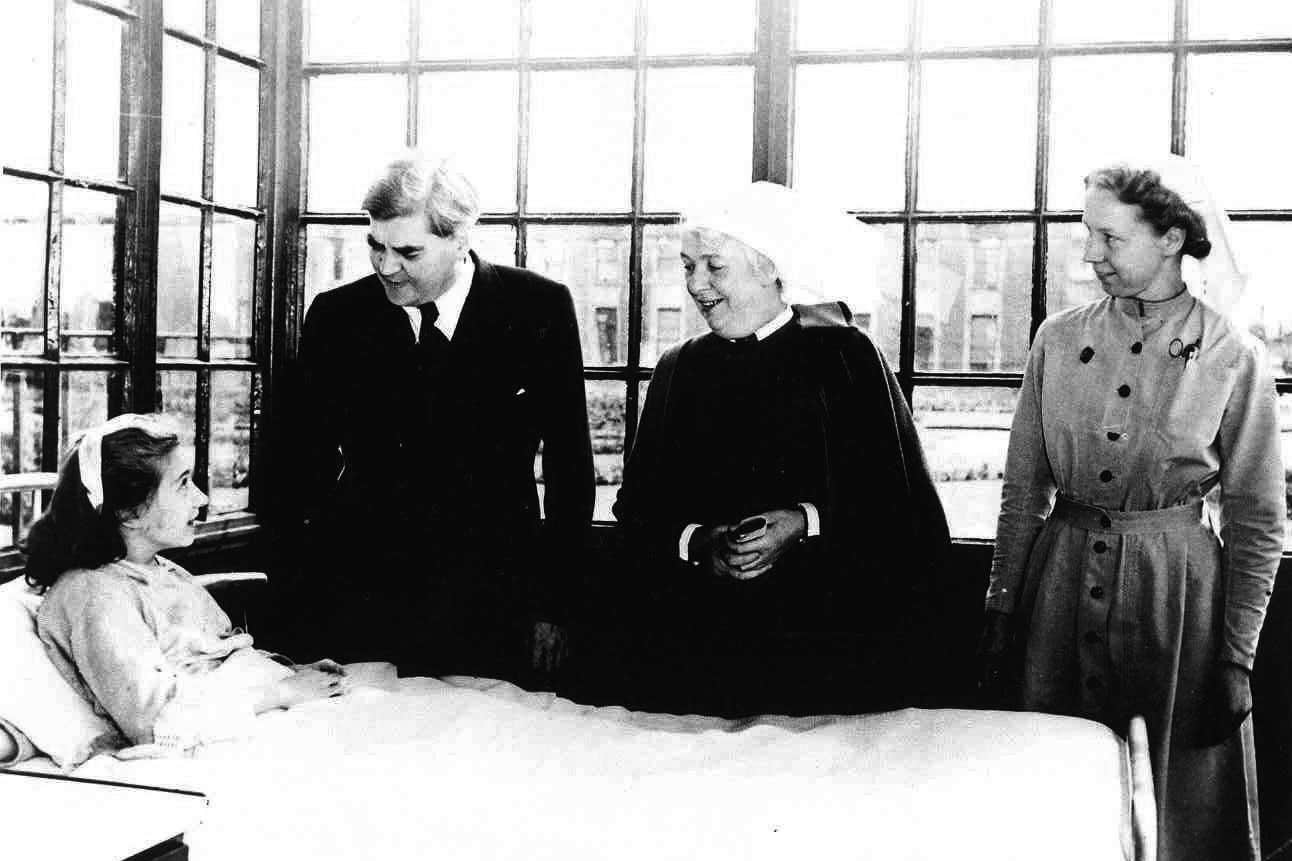What happened before the health service? Your NHS questions answered
The new national service meant everybody could get treatment, whether they were a baker or a banker.

Your support helps us to tell the story
From reproductive rights to climate change to Big Tech, The Independent is on the ground when the story is developing. Whether it's investigating the financials of Elon Musk's pro-Trump PAC or producing our latest documentary, 'The A Word', which shines a light on the American women fighting for reproductive rights, we know how important it is to parse out the facts from the messaging.
At such a critical moment in US history, we need reporters on the ground. Your donation allows us to keep sending journalists to speak to both sides of the story.
The Independent is trusted by Americans across the entire political spectrum. And unlike many other quality news outlets, we choose not to lock Americans out of our reporting and analysis with paywalls. We believe quality journalism should be available to everyone, paid for by those who can afford it.
Your support makes all the difference.As health secretary Aneurin Bevan opened Park Hospital in Manchester in 1948, the future of healthcare in the UK changed forever.
The new national service meant everybody could get treatment, whether they were a baker or a banker.
It was the first system of its kind in the world and people queued in the streets in the hope of getting treatment.
Here are your questions answered about the launch of the world’s best-known health system.
– What were the British public told?
The 1946 National Health Service Act promised a “comprehensive health service for England and Wales”.
It said the service would bring “improvements in the physical and mental health of the people” and the “prevention, diagnosis and treatment of illness”.
Importantly, it said these services would be free of charge.
The Act brought together a wide range of medical services under one organisation – including hospitals, doctors, nurses, pharmacists, opticians and dentists.
– Why did things have to change?
Before to the creation of the NHS 75 years ago, care for the masses was largely provided by voluntary organisations and charities and insurance schemes which left millions of people with little or no access to quality healthcare.
– Why 1948?
The Act introducing the NHS became law in 1946 – the year after the Second World War ended.
During the war, the state had controlled many aspects of people’s lives so the concept of the Government looking after the health of the nation may not have seemed completely alien when it was introduced.
And in the immediate post-war period, political parties largely agreed on the country’s main priorities and generally cooperated trying to achieve them. Post-war recovery was the main priority, but another was the welfare of the people.
– Who was Aneurin Bevan?
When Labour came into power in 1945, an extensive package of welfare measures was introduced, including the NHS.
Minster for Health, Aneurin ‘Nye’ Bevan, was given the task of introducing the service.
Many refer to Mr Bevan as the “chief architect” of the NHS.
He was born in Tredegar, Wales in 1897 in a poor working class family.
His father was a miner and some have said the idea of the NHS came from the collective medical protection scheme set up by miners in his home town. Others have said that the truth is actually more complex.
The first baby born on the NHS – Aneira Thomas – was named after Mr Bevan.
– Was there opposition to the launch of the service?
Despite political consensus, the introduction of the service still drew controversy.
Many groups, including charities, churches and local authorities did not want the Government to take control of hospitals.
Doctors also protested at becoming employees of the state.
– How was the public informed about the launch of the NHS?
Mass marketing was very different 75 years ago and people learned about the launch of the NHS through a variety of unique ways.
There were beach carnivals, prayer services in churches, Q&A sessions in local cinemas and cafes.
But it was often it was down to ordinary citizens to educate each other about the health service.